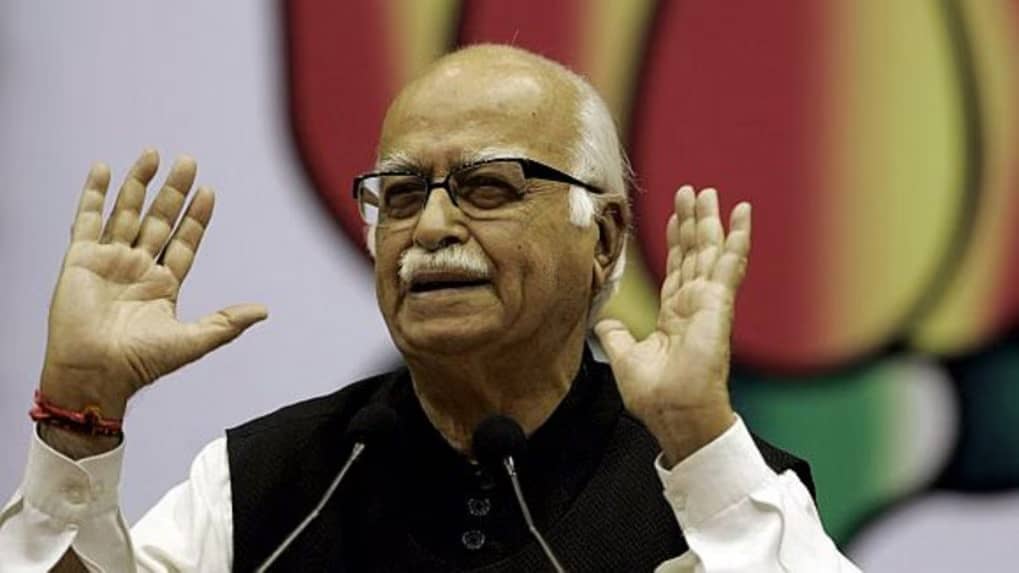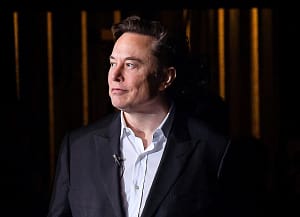
Early Life and Education
Lal Krishna Advani
Lal Krishna Advani, fondly called L.K. Advani was born on 8 November 1927 in Karachi that was at the time an integral part of British India. He comes from a Sindhi Hindu family. He was the son of Kishinchand D. Advani, a successful businessman, while the mother of his son, Gyani Devi, was a household worker. Advani’s childhood within a family of traditional Sindhi family played an important part in shaping his values and beliefs.
Advani started his schooling at St. Patrick’s High School in Karachi. In the following years, he attended D.G. National College in Hyderabad, Sindh. Partition of India in 1947 compelled his family to relocate to India and settle in Bombay (now Mumbai). Advani continued his education at the Government Law College, Mumbai, and was awarded a law degree.
Participation in Politics
Advani’s political career has been influenced in part by his initial connection to his former employer, the Rashtriya Swayamsevak Sangh (RSS). Advani became a part of the RSS as a Swayamsevak (volunteer) at the age of 42 and quickly rose to the top of the ladder because of his commitment and leadership capabilities. The RSS played a significant part in shaping Advani’s political views and gave him an enduring foundation of the values of nationalists and culture.
Advani’s political journey began at the start of 1951 when he joined the ranks of Bharatiya Jana Sangh (BJS) which is which is the main political arm of RSS. He was advised by Syama Prasad Mukherjee who was who was the BJS’s founder BJS, and Deendayal Upadhyaya, an influential ideologist. Advani’s skills in organizing and oratory skills quickly earned his recognition in the BJS party.
Rise in the Bharatiya Janata Party (BJP)
In the year 1980 in 1980, the Bharatiya Janata Party (BJP) was established as a successor organization to the Bharatiya Jana Sangh. Advani, together with Atal Bihari Vajpayee, played a key role in the creation of the BJP. The BJP’s goal was to be a powerful option to replace the Indian National Congress, which had been the mainstay of Indian politics since the country’s independence.
Advani’s leadership in the BJP was defined by his strategic thinking and dedication to the ideology of the party. He was President of the BJP from 1986 until 1991 and then from 1993 until the year 1998. Under his direction, the BJP went through significant organizational reforms and expanded its reach throughout India.
Ram Janmabhoomi Movement
A single of the significant moments of Advani’s political career was his participation of his involvement in the Ram Janmabhoomi movement. The idea behind the movement was to build a tower in the place of birth of Lord Rama in Ayodhya, which is in the same spot where the Babri Masjid was located. The Advani’s Rath Yatra (chariot journey) in the year 1990 was a major event that sparked support for the cause.
The Rath Yatra began in Somnath, Gujarat, and traveled through several states, eventually trying to get to Ayodhya. The journey was accompanied by large rallies and mass gatherings, during which Advani strongly advocated for the building of the Ram Temple. It was the Rath Yatra that significantly boosted the popularity of the BJP and raised Ayodhya to the forefront of politics. Ayodhya to the front of Indian political debate.
The conclusion of the Rath Yatra and the subsequent events resulted in the demolition of Babri Masjid on 6 December 1992. The demolition led to mass communal violence and an impact that was profound on Indian political life. Although the event was controversial and divided, however, it strengthened Advani’s standing as a prominent leader in the BJP.
Role in the NDA Government
The rise of the BJP culminated in the creation of the National Democratic Alliance (NDA) government in 1998, with Atal Bihari Vajpayee as its Prime Minister. Advani was Deputy Prime Minister as well as Minister of Home Affairs within Vajpayee’s cabinet. Many significant changes occurred during his time in these positions.
As Home Minister, Advani concentrated on security within the country and counter-terrorism efforts. He played an important part in tackling the issues created by the insurgencies in Jammu and Kashmir, as well as the states in the northeast. Advani’s strategy was defined by a mixture of decisive actions against militancy as well as attempts to establish dialogue with different groups.
Advani’s contributions to his contributions to the NDA government’s policy-making were crucial in determining India’s economic and strategic direction. Advani pushed for reforms and liberalization of the financial system that helped to boost the country’s economy through the late 1990s and into the early 2000s. In addition, his focus on building India’s defense capabilities and strategic alliances helped improve the country’s international standing.
The 2004 General Elections and Aftermath
The NDA government suffered a major defeat during the 2004 general election in which the BJP-led alliance was shockingly lost by the Indian Congress’s United Progressive Alliance (UPA). The defeat in the polls triggered reflection within the BJP and Advani’s position as the leader of the party was scrutinized.
Despite losing the election, Advani continued to be an influential figure in the BJP. He was Opposition Leader in the Lok Sabha from 2004 until 2009. At that time, He was focused on making the UPA government accountable as well as advocating for the BJP’s policies as well as strategy for India.
Controversies and Challenges
His political career has not been without controversy. One of his most memorable controversies was his involvement with his involvement in the Babri Masjid demolition case. Along with other BJP leaders, he was a victim of legal instances in connection with the demolition. The case was a long-running legal battle, and Advani repeatedly claimed that it was a spontaneous action by the Karsevaks (volunteers) rather than part of a planned conspiracy.
Another controversy was sparked in 2005 when Advani was in Pakistan and issued a statement of praise for Muhammad Ali Jinnah, the founding father of Pakistan. The remarks sparked a huge discussion between the BJP as well as in the Sangh Parivar, as Jinnah was seen as a polarizing person who was responsible for splitting India. Advani’s comments led to his resignation as BJP president, though Advani later announced his resignation.
Advani was also criticized within the BJP during the transition of the leadership. The rise of Narendra Modi as an influential leader within the BJP resulted in a rift in the BJP between Advani as well as Modi. Advani’s hesitation to fully support Modi’s policies was apparent in the 2014 election season. But, despite the differences, Advani remained a respected older statesman within the party.
Contributions to Indian Politics and Legacy
The contributions of Lal Krishna Advani’s Indian political life are diverse and long-lasting. His contribution to the growth and growth of the BJP as a powerful political force is not overstated. Advani’s leadership at crucial points in the BJP’s history has been instrumental in shaping the party’s organizational structure, ideology, and electoral strategy.
Advani’s support for cultural nationalism, as well as his promotion of the Hindutva concept as a political concept, contributed significantly to gaining his support to the BJP. His efforts to raise issues of national identity, cultural heritage, and the importance of religion at the top of political discussion have had a lasting effect on Indian politics.
Alongside his achievements in politics, Advani’s attributes, such as his ability to speak clearly, discipline, and commitment, have earned him the respect of people across all political lines. His ability to reach the people with the speeches he gives and his rallies has made him a likable leader.
Personal Life and Interests
Advani’s life as a person is characterized by simplicity and a commitment to his beliefs. He was married to Kamla Advani in 1965, and the couple has two children: one son who is named Jayant, and a daughter, Pratibha. Kamla Advani died in the year 2016, leaving a huge void in the Advani’s world.
Despite his hectic professional life as a politician, Advani has been an avid writer and reader. He has written a number of books, which include the autobiography “My Country, My Life,” which offers insights into his political and personal journey. The book is a reflection of his challenges, experiences, and successes, providing readers with a glimpse of the daily life of a successful politician.
Advani’s passions also include cricket in particular and he’s often proclaimed his admiration for the sport. His love for Indian tradition and culture manifests in his writings and speeches, where he focuses on the importance of protecting the rich Indian cultural heritage.
Conclusion
Lal Krishna Advani’s career in Indian political life is a testament to his determination, perseverance, his beliefs. As a veteran politician, Advani has been a witness and influencer of some of the most important developments in India’s post-independence era. His contribution towards and contributions to the Bharatiya Janata Party, the Ram Janmabhoomi movement, and his participation as a member of the NDA administration have made a lasting impression on Indian politics.
Advani’s legacy has some controversy and controversies. However, his influence on Indian political and social life is indisputable. While India continues to grow the accomplishments of leaders such as Lal Krishna Advani serve as an example that it is important to have leadership with vision, ideology determination, and the ability to adapt to the ever-changing world.





